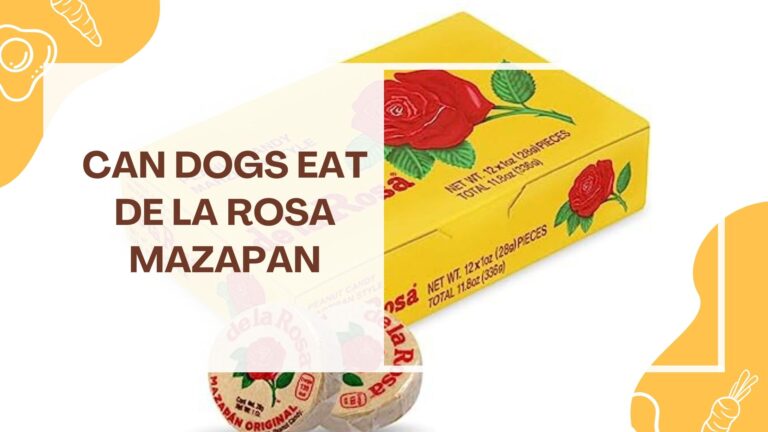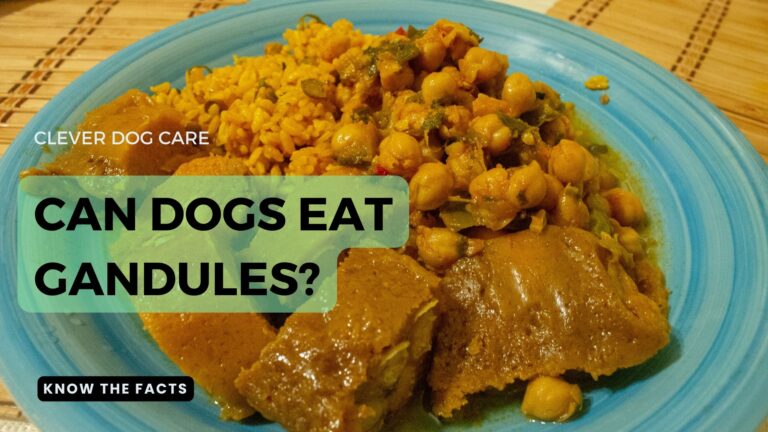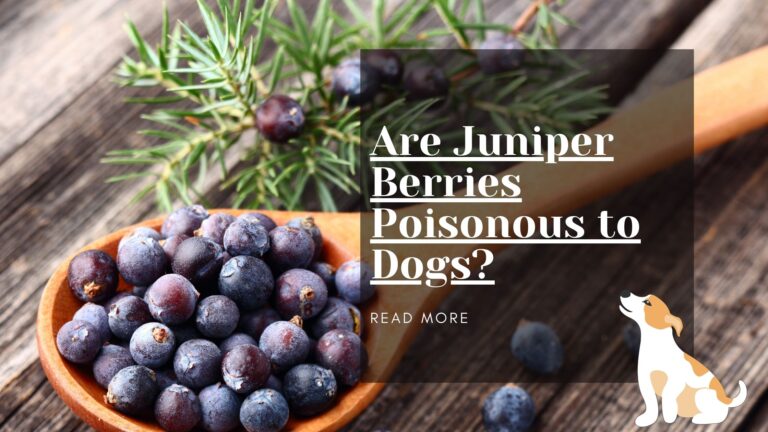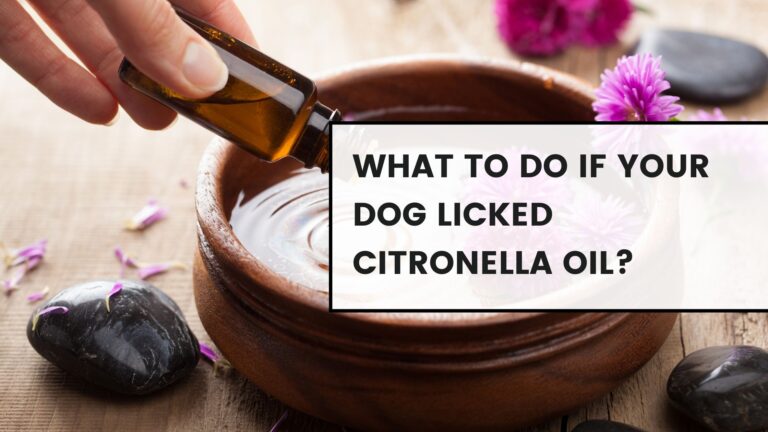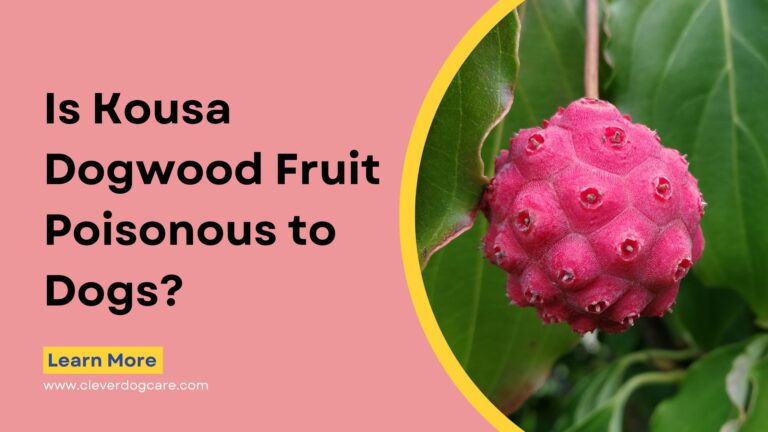Sucralose Poisonous to Dogs? What You Need to Know Before Feeding Your Furry Friend

Are you worried that sucralose might be poisonous to your beloved pup? With so much conflicting information out there on pet nutrition, it can be hard to know what’s true and what isn’t. As an animal lover with years of experience researching pet health, I’m here to answer this question for you once and for all.
In this article, I’ll break down the facts about sucralose poisoning in dogs as well as provide some helpful tips on safer alternatives for Fido’s diet. Together we’ll explore what symptoms to look out for if your pup has ingested too much sucralose and how soon you should seek veterinary care in such cases. By the end of this article, you will have gained enough knowledge to make sure that nothing gets between you and your furry four-legged friend! So let’s dive in – heres everything you need to know about keeping your pet safe from harm!
1. What is Sucralose and Why is it Used in Foods?

Sucralose is a marvel of modern science, a tiny crystal that sparkles with sweetness. It dances on the taste buds, delivering a burst of flavor without any guilt-inducing calories. This artificial sweetener has become the go-to choice for those seeking to maintain their weight or keep their blood sugar in check.
But let’s not confuse sucralose with its natural counterparts. You won’t find this magical crystal nestled within succulent fruits or luscious desserts. Unlike the sugars found in nature, sucralose is a creation of human ingenuity – carefully crafted to provide that delightful sweetness we crave without any drawbacks.
So what makes sucralose so special? Well, it all comes down to its ingenious design. While natural sugars are broken down by our bodies and converted into energy or stored as fat, sucralose passes through our digestive system virtually unchanged. It enters our mouths like an enchanting guest at a grand ball and leaves just as gracefully.
This remarkable quality is why sucralose boasts zero calories. Yes, you read that right – no calories whatsoever! That means you can indulge in your favorite treats guilt-free; whether its a velvety chocolate mousse or an indulgent slice of cheesecake.
- No need to worry about extra pounds sneaking onto your waistline while savoring these delights!
- And if diabetes is part of your life’s journey, fret not! Sucralose won’t cause undesirable spikes in blood sugar levels either.
In conclusion, while nothing can replace the joy derived from natural sugars found abundantly in nature’s bounty think plump strawberries bursting with sweetness sucralose offers us an alternative when counting calories matters. So go ahead and sprinkle some magic into your daily dose of sweetness with this remarkable artificial sweetener!
We have covered an extensive guide on Ashwagandha which includes are citronella plants poisonous to dogs. Further to better understand the herb and its various uses, we have covered topics like are juniper berries poisonous to dogs which you might be interested in. Also, check out our recent posts: is kousa dogwood fruit poisonous to dogs
2. Is Sucralose Poisonous to Dogs?
Sucralose is a zero-calorie artificial sweetener that is commonly found in many human food products. It is used to provide sweetness without adding extra calories, making it a popular choice for people who are watching their weight or managing diabetes. While sucralose may be safe for humans, it’s important to remember that dogs have different metabolisms and digestive systems.
Although sucralose itself isn’t poisonous to dogs, it’s still not recommended to give your furry friend anything containing this sweetener. Dogs have much smaller bodies compared to humans, so even small amounts of sucralose can potentially cause an upset stomach or gastrointestinal issues. In addition, some studies suggest that artificial sweeteners like sucralose may affect the gut bacteria in dogs, which could lead to digestive problems over time.
It’s always best to err on the side of caution when it comes to feeding your dog anything that isn’t specifically formulated for them. Stick with dog-friendly treats and foods that are made with natural ingredients and avoid any products containing artificial sweeteners like sucralose. If you suspect your dog has ingested something harmful or if they start showing symptoms such as vomiting or diarrhea after consuming a product with sucralose, don’t hesitate to contact your veterinarian immediately.
In conclusion, while sucralose itself may not be poisonous to dogs, it’s better safe than sorry when it comes to what we feed our furry friends. Stick with dog-approved treats and foods and consult your veterinarian if you have any concerns about specific ingredients or products. Your pup’s health and well-being should always be a top priority!
Also Read: https://cleverdogcare.com/is-echinacea-poisonous-to-dogs/
3. Potential Risks of Sucralose Consumption for Dogs

When it comes to our furry friends, we always want what’s best for them. And that includes being mindful of their diet. While sucralose itself may not be directly poisonous to dogs, going overboard with its consumption can lead to some unpleasant consequences. You see, many foods that are sweetened with artificial sweeteners like sucralose often come in packages filled with other questionable ingredients.
Processed foods laden with preservatives and additives can wreak havoc on your dog’s health. These sneaky culprits can cause digestive issues, upset stomachs, and even allergic reactions in some sensitive pets. So when you’re browsing the pet food aisle or handing out a treat, take a peek at the ingredient list beyond just looking for sugar content.
To keep your pup feeling their absolute best, opt for natural alternatives instead of loading them up with chemically-enhanced goodies. Think about incorporating fresh fruits like apples or blueberries into their diet as an occasional tasty treat. Not only do they provide natural sweetness without any harmful additives but they also offer essential vitamins and minerals that support overall well-being.
- Your four-legged friend deserves the very best care
- Avoid excessive consumption of sucralose-filled processed foods
- Keep an eye out for other unhealthy ingredients lurking in pet treats
- Choose natural alternatives such as fresh fruits for guilt-free indulgence
In conclusion, while sucralose might not be fatal to dogs if consumed occasionally and in small quantities, it’s always better safe than sorry when it comes to our beloved companions’ health. Remember to read those labels carefully and give your pup the wholesome nutrition they deserve!
Also Read: https://cleverdogcare.com/can-dogs-eat-quenepas/
4. Symptoms of Sucralose Poisoning in Dogs
If you suspect that your furry friend has indulged in a sugary feast and is now suffering from these symptoms, it’s essential to take action immediately. First and foremost, don’t panic! Stay calm and assess the severity of the situation.
The first step is to **contact your veterinarian** right away. They will provide guidance tailored specifically to your dog’s needs. While waiting for professional advice, closely monitor your pooch for any worsening symptoms. Remember, every dog is unique, so their reaction to sucralose might vary.
In the meantime, ensure that your pup stays hydrated by offering them plenty of fresh water. This will help prevent dehydration caused by vomiting or diarrhea they may be experiencing as a result of consuming excessive amounts of sucralose-laden food.
Next on the agenda is limiting their food intake temporarily. Stick to small portions of easily digestible meals like boiled chicken or rice until you’ve sought veterinary assistance. However tempting it may be to shower them with treats or feed them normally out of habit, restrain yourself for their own well-being.
It’s crucial not to underestimate the potential risks associated with sucralose ingestion in dogs as this artificial sweetener can have adverse effects on their health if consumed excessively. By acting swiftly and seeking professional advice promptly, you’ll ensure that your beloved companion receives proper care and attention during this challenging time because nothing matters more than keeping our four-legged friends safe and sound!
Also Read: https://cleverdogcare.com/can-dogs-eat-quenepas/
5. When Should You Seek Veterinary Care?
Sucralose is an artificial sweetener commonly found in various products, including some that are marketed as safe for dogs. However, what many pet owners don’t realize is that sucralose can be toxic to dogs and cause a range of symptoms.
If your dog ingests a product containing sucralose and displays any concerning symptoms, it’s crucial to seek veterinary care promptly. Some common signs of sucralose toxicity in dogs include vomiting, diarrhea, increased thirst, and changes in appetite. These symptoms may appear within hours or even days after ingestion.
Upon visiting the vet, they will likely perform a thorough physical examination of your furry friend. They may also run blood tests to assess organ function and check for any abnormalities. Treatment options will vary depending on the severity of your dog’s symptoms but could include intravenous fluids to rehydrate them or medication to alleviate nausea.
- Veterinary Care: It’s vital not to delay seeking professional help when you suspect your dog has consumed a product with sucralose.
- Recognizing Symptoms: Keep an eye out for vomiting, diarrhea, increased thirst, or appetite changes after your dog consumes anything containing this artificial sweetener.
- Evaluation and Treatment: Your vet will thoroughly examine your pet and may conduct blood tests before deciding on the appropriate treatment plan.
In conclusion, while sweet treats may seem tempting to share with our four-legged companions at times, it is essential always to double-check their ingredients’ safety. If you suspect sucralose poisoning in your furry friend due to troubling symptoms post-consumption, don’t hesitate to head straight to the veterinarian!
Also Read: https://cleverdogcare.com/is-potentilla-indica-poisonous-to-dogs/
6. Safer Alternatives to Sucralose for Your Dog’s Diet
When it comes to our furry friends, we always want what’s best for them. And that includes their diet. Artificial sweeteners like sucralose may seem convenient and tempting, but they can pose certain risks to our dogs’ health. That’s why exploring safer alternatives is a smart move.
One alternative that tops the list is honey. Not only does it add a touch of sweetness to your dog’s meals or treats, but it also has some great health benefits! Honey contains antioxidants that can boost your pup’s immune system and promote overall well-being. Just make sure to use raw honey in moderation, as excess consumption can lead to weight gain.
Another option is incorporating small amounts of fruits into your dog’s diet. Fruits like apples, blueberries, and bananas not only add natural sweetness but also provide essential vitamins and minerals. However, remember that too much fruit can upset your dog’s stomach due to the high sugar content, so moderation is key here as well.
Incorporating these natural sweeteners into your dog’s diet allows you to satisfy their sweet tooth without compromising their health. Remember though balance is crucial in any aspect of nutrition! So go ahead and try these safe alternatives today to pamper your furry friend with a hint of sweetness while keeping them healthy and happy!
7. Conclusion: Keeping Your Pet Safe from Harm
When it comes to our beloved furry friends, we want nothing but the best for them. That includes the food we feed them. While sucralose may not be toxic to dogs, it’s always better to err on the side of caution and choose natural ingredients over artificial ones.
Opting for foods that are made with minimal processing will ensure that your pup is getting all the nutrients they need without any potentially harmful additives. Natural ingredients are easier for their bodies to digest and can help prevent any digestive issues or allergies that could arise from consuming processed foods.
But what if you’re unsure about what foods are safe for your dog? That’s where your veterinarian comes in. They have a wealth of knowledge about pet nutrition and can provide personalized advice based on your dog’s specific needs. Whether you have a small breed or a large one, a puppy or a senior dog, they will be able to guide you toward the best dietary choices.
So remember, when it comes to feeding your four-legged friend, prioritize their health and well-being by choosing natural and minimally processed ingredients. And don’t hesitate to reach out to your vet if you have any concerns or questions along the way. After all, keeping our furry companions healthy and happy is what being a responsible pet owner is all about!
Also Read: https://cleverdogcare.com/can-dogs-eat-de-la-rosa-mazapan/
FAQ
1. Can sucralose be toxic or poisonous to dogs?
– No, sucralose is generally considered safe for dogs when consumed in moderation. However, it’s always best to consult with your veterinarian before giving any artificial sweeteners to your furry friend.
2. What are the potential risks of feeding sucralose to dogs?
– While small amounts of sucralose are typically safe for dogs, excessive consumption may cause gastrointestinal upset such as diarrhea or vomiting. It’s crucial to monitor their intake and avoid giving them foods or products that contain high levels of artificial sweeteners.
3. Are there any symptoms I should watch out for if my dog accidentally consumes a product containing sucralose?
– If your dog accidentally ingests a small amount of food or drink containing sucralose, it may not experience any noticeable symptoms. However, keep an eye out for signs like stomach upset (vomiting or diarrhea) and contact your vet if you notice anything unusual.
4. Can I use products containing sucralose as a sugar substitute in homemade dog treats?
– In general, it’s recommended to avoid using artificial sweeteners like sucralose in homemade dog treats. Instead, opt for natural alternatives like mashed bananas or unsweetened applesauce that are both safer and healthier options for our canine companions.
5. Is there a safer alternative sweetener available for dogs instead of using sucralose?
– Yes! Natural alternatives like raw honey can be used sparingly as a sweetener in certain dog-friendly recipes when approved by your vet. Remember that moderation is key when incorporating any type of sweetness into your pet’s diet.

